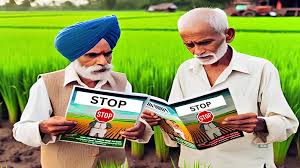Pay farmers not to farm... paddy
Paying farmers in Punjab and Haryana an explicit subsidy not to grow paddy, as suggested by an ICRIER policy brief released this month, makes ample sense. It's an efficient alternative to MSP earmarked for grain, legislated increments of which have become the cause of farmer agitation in the region. The MSP programme itself has been called into question over farmers' ability to sell crops at prices that will support farming paddy and other covered crops. To access the intended price support offered through MSP, the farmer has to go through the expenses of an entire harvest so that GoI can procure grain to be stored for food security. A subsidy not to farm paddy addresses waste in the grain storage mechanism, but, more importantly, it frees up government resources to offer support prices for a larger variety of crops that the country is deficient in.
Paying farmers not to farm may sound odd, till the ecological impact of farming is priced in. That includes irrigation, fertiliser and power costs, some of which GoI bears. In the case of paddy in Punjab and Haryana, these costs are considerable, making cultivation unviable without input subsidies alongside price supports. Then there's the matter of ecological damage of unsustainable agriculture. All of these add up to the explicit subsidy the ICRIER paper is suggesting for weaning farmers in northwest India off growing paddy - which can be grown with less damage to the environment in rainfed parts of the country. A green revolution awaits pulses and edible oils that would benefit from both input subsidies and price support. It would also reduce India's import dependence for these crops.
Other countries have found it expedient to pay farmers not to grow selective crops, instead of making them go through with the expense of doing so to claim support prices, and for governments to store such crops in warehouses where they rot or are eaten by rats. India can consider this agri intervention for nutritional security, sustainable farming and an evergreen revolution
